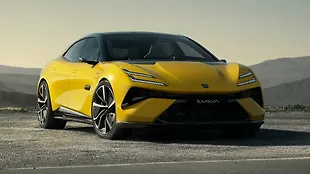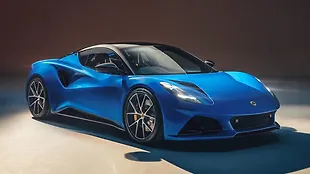In the last episode
In the first part of our adventure with the Venue and on the Great India Drive, we proceeded from the mighty gaze of India’s Iron Man towards Pokhran.

Along the way, we drove on a multitude of roads, ate a lot of food (vegetarian sadly), soaked in the sights and of course munched the kilometres in a quick and surprisingly economic manner.
Our aim to see one of the sights that put India on the world stage in the 20th century was cut short right at the finish line by government restrictions. This left us to stand at the periphery of the test site and sum up our journey so far.
Gates of the Golden City
After days on the highway and chasing destinations that seemed to grow further and further away every time we looked at the map, we finally arrived at Jaisalmer.

It’s a town steeped in history across centuries of India’s existence and seemed a worthy destination to explore with the Venue. Our arrival quite late in the day meant that we headed straight to our hotel which turned out to be a heritage property right under the gaze of the mighty Jaisalmer Fort.

Aptly named Shahi Palace (you read paneer didn’t you?) its rooftop restaurant gave us a commanding view of our next destination.
Special Green chutney

The next morning, before exploring the fort we decided to tuck into some of the local treats to fuel up for the day. This is the desert and frying is the rather delicious way of life. We found our paradise right under the walls of the Jaisalmer Fort in the form of a massive and rather well-informed crowd waiting for kachoris at a handcart as they were being brought to life.

We say a well-informed crowd because they began to turn up just as the kachoris finished their oil bath and disappeared just as the last one met its master. Of course, things got weird when the locals suggested that the complete fun of eating the kachoris would only happen if we added locally-made “special green chutney”. With a full day of work ahead of us, we respectfully declined.

Further eating escapades also saw us try dal pakwan, locally brewed sherbets, bread pakodas and of course, samosas too!
Living Fort

After considerably stuffing our faces, we entered the Jaisalmer Fort. Known locally known as Sona Quila, it is one of the largest forts in the world. It was built in 1156 AD by the Bhati Rajput ruler Rao Jaisal, hence the name. It is 460 m long and is built on a hill that rises above a height of 76m above everything that surrounds it. The massive courtyard was the last point to where the Venue could venture and we thus took in the fort on foot.

This being an early hour, we entered to find the hawkers and vendors setting up their wares for the day and were treated with a lovely sight of the golden drab walls of the structure being adored with multicolour hues of clothes, trinkets and many leather products.

We were surprised to find livestock, motorcycles and open drains all over the fort but then again this was a rural area and a living fort…oh well!

Looking for a place to finish our final PTC, we ventured out to what had been named cannon point and were treated to a spectacular view of the town about 20-25 stories below us. We could only imagine what it must have been like for each of the rulers of Jaisalmer to stand at this point and drink in the surroundings of their kingdom.
Salam Singh's Haveli

After being “Fortified” we stepped out and headed off to our next destination which turned out to be not too far away. Dubbed Salam Singh’s Haveli, it was the home of Salam Singh, one of the most prominent Prime Minster of the Princely state of Jaisalmer. He was one of the first to leave the confines of the Fort to set up home outside.

Now this being a desert, where water is scarce, and the builders had to get innovative and ended up employing a system of interlocking blocks with steel joints to keep them in place.

The result was a spectacular haveli which today stands tall in the market area. Among the shops and showrooms, it is hard to miss even today but must have been one hell of a sight rising out of the sand and standing just as prominently as the Sona Qila itself.

We arrived at the Haveli and were initially disappointed as it was closed that very day. However, the owner, who himself was a descendant of Salam Singh, Mr Gajraj, was gracious enough to let us and gave us a tour of the building. In life, there is always a saying that it is the little details that matter and that was applicable verbatim to intricacies of the haveli. For example, the trimmings that you see in the picture above are, to date, removable and could be modified to holds lamps within them for festive occasions.

Comprising three stories, the inner passages were connected by stone steps of which every row of stairs had a larger step right at end/beginning. The idea behind it was that those who came with malicious intentions would have to put in an extra effort to achieve their final destination, giving the security personnel on duty more time to react.

We were also shown the Diwan where the minister entertained his guests. The built-in beautiful combination of blue tile and Belgian made mirrors, we could only imagine the spectacle of a full-court in attendance while the entertainment took place in the centre.
A haunting in RJ-15

Salam Singh’s haveli had been an eye-opening experience in terms of innovation and intricacies but our next destination proved to be even more tantalising for “spirited” reasons (please pardon the terrible ghost pun).

We were at Kuldhara, a village outside Jaisalmer with a reputation for being one of the most haunted spots in India. Legend has it that the settlement was abandoned after its villagers refused to give up one their young kin to the hand of Salam Singh. The legend further goes on to state that he then threatened the village with a heavy tax burden (cue the dugna Lagaan jokes) if they did not acquiesce to his request.

Rather than cave in, they picked up kith, kin, bori, bistaar and disappeared into the desert but not before placing a curse on the village as well as the land. A sign in the location also points at earthquakes and drought as one of the catalysing factors for exodus but the real reason could be any one of these three.

Now in 2019, we paid an entry fee and drove past an ASI sign to enter the complex. However, once inside and among the less prominent ruins, we could see the dilapidation of the structures and some occasions even sent a chill/shiver down the spine while covering the location. There was also a tinge of gloominess as we walked around and tried to understand the life that each structure had held and how quickly they turned into hollow shells once the residents moved away.
Mid-day run

After spending nearly half a day in parking lots, the Venue finally got to stretch its legs as we drove it the 25 odd kilometres from Jaisalmer to Kuldhara. It might have been 36C outside but inside the Venue, it was a cool 23C with the climate control system working overtime to prevent us from overheating.
The rocky cobbled paths inside the village were a good test of the Venue’s low-speed ride and we came quite impressed with the way the car managed to keep us from getting a prolonged double vision.
“Desert Safari- only Rs 250”

Our final destination, for not just day, but the trip too was the legendary Sam Sand Dunes. One of the most prominent “If you visit Jaisalmer, you have to experience this place” type place, the dunes are well…filled to the brim with hotels, tents, jeeps and people desperate for your business!

Once we managed to dodge the crowds, business seekers and even the camels, we finally found a spot in the sand to watch the spectacular sunset and even complete our last PTC for the video. As the sun set, the desert became more beautiful than it had ever been for the last few days call it if you will the final and most fantastic venues for the Venue drive.
Fin.

The sprint back to Mumbai from Jaisalmer was pretty straight forward. We had enjoyed the sights and sounds of the desert, eaten everything in our path and driven over 2500kms in our quest and understood so much about one of India’s more iconic states. The Venue had danced to our tunes without missing a single beat along the way giving us a fun, fast and colourful driving experience.
Hyundai Great India drive part 1
Photography: Kaustubh Gandhi
Words: Venkat Desirazu
![Hyundai Venue [2019-2022] Image Hyundai Venue [2019-2022] Image](https://imgd.aeplcdn.com/272x153/n/cw/ec/35455/venue-exterior-right-front-three-quarter-2.jpeg?q=80)
























